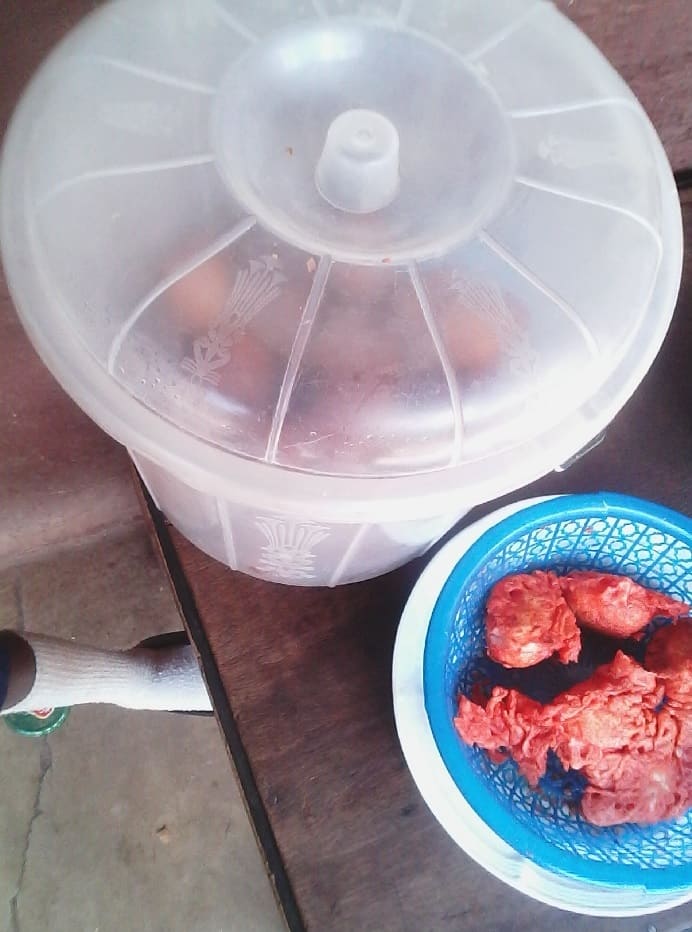PROBLEMS FACED BY DIFFERENT LOCAL MALAWIANS IN THE REMOTE AREAS
MAVUTO OMWE AMALAWI OSIYANASIYANA AKUKUMANA NAWO MMAMIDZI
はじめに
INTRODUCTION
CHIYAMBI
マラウイの子どもにとっての大人への道のりは、明るい未来を手に入れるために、(道中の主な敵となる)貧困に打ち勝つための勇気、力、決断が必要な数千キロにも及ぶものになる。
A journey for Malawian child from childhood to adult hood is a journey of thousand miles that requires courage, strength and determination to defeat poverty (the main enemy along the way) so as to have a brighter future.
Ulendo wa moyo wa mwana wakumalawi posintha kuchoka ku umwana kupita kuukulu , ndi ulendo wautali kwambiri omwe umafunika kulimba mtima, mphavu komanso kuikapo mtima pogonjesa umphawi umene uli mdani wamkulu ndi cholinga chofuna kukhala ndisogolo lowala.
妊婦の直面する問題
PROBLEMS FACED BY PREGNANT WOMEN
MAVUTO OMWE AZIMAYI OYEMBEKEZERA AKUKUMANA NAWO
マラウイには病院、訓練を受けた看護師、助産師がいるにも関わらず、社会サービスの利用には障害がある。
都市郊外やマーケットエリア(大部分の病院やクリニックがある)から距離のあるところにいる妊婦の場合、出産のために長い距離を歩くことになる。
大抵妊婦はカートや自転車を使って運ばれており、多くの女性は病院へ行く途中で出産をしている。
Despite Malawi having hospitals and well-trained nurses and midwives still the accessibility of the social service is a hindrance. In this case pregnant women from far the outskirts of town and trading centres (where most of the hospitals and clinics are found) walk long distances to hospital for delivery. This has led to continued existence of maternal deaths. Most of the times expectant mothers are drove to the hospital using carts and bicycles. Many women give birth along their way to the hospital.
Ngakhale dziko la malawi lili ndi zipatala komanso anamwino ndi azamba ophunzitsidwa bwino, kafikilidwe ka zipatalazi ndikovuta. Pankhaniyi, azimayi omwe amakhala mmadera akutali ndi tawuni komanso malo ochitira malonda (komwe zipatala zambiri zimapezekera) amayenda mitunda itali itali popita kuchipatala kokachira. Izi zadzesa kuchitikabe kwa imfa za amayi oyembekezera. Nthawi zambiri amayiwa amayendesedwa pa ngolo komanso pa njinga ndipo ayiwo ambiri amaberekera munjira.
このことから、女性の中には、出産を専門としていなかったり、出産についての知識のないことが多い伝統的な助産師から医療を受ける人もいる。
これは、村での未登録の幼児や妊産婦死亡率の増加を引き起こす原因の一つにもなっている。
Due to this some women prefer seeking medical attention from traditional midwives who in most cases are women that are not specialists in that professional and incompetent for that task. This is also one of the reasons that triggers an increase in unrecorded infant and maternal mortality rate in the villages.
Kamba ka ichi, amayi ambiri amafuna thandizo kwa azamba achikuda omwe nthawi zambiri amakhala opanda ukadawulo pakuchembeza.
Ichinso ndichifukwa china chomwe chimawonjezera kukwera kwa chiwerengero cha imfa za amayi oyembekezera mmamidzi.
新生児が生まれたばかりの間は、様々な信仰や伝統的な薬を与える。
例えば、多くの粉薬がポリッジ(お粥)に入れて与えられており、それらの薬は子どもの健康のためだけでなく、(魔術に対する)防御機能としての効能もある。
During the early days of the born baby, he is subjected to different beliefs and traditional medicine. For example, many powdered medicines are administered to him/her through porridge. These medicines are not only intended for the good health of the child but also as a defence mechanism (against witchcraft).
Mmasiku oyambirira amwana obadwa, amakumana ndi zikhulupiliro komanso mankhwala achikuda. Mwachisanzo mankhwala ambiri aufa/opera amapasidwa kwa iye kudzera mu phala. Cholinga chamankhwalawa sikungobweresa thanzi labwino ayi komanso kumuteteza kwa afiti.
高齢者の直面する問題
PROBLEMS FACED BY ELDERS
MAVUTO OMWE ANTHU ACHIKULIRE AKUKUMANA NAWO
いくつかの信仰に従わなければ、魔女や魔術師が子供に魔術をかける可能性があると信じられている。
さらに、子育ての期間に母親が死ぬと、小さい子供は魔術師になると言い始める。
悲しいことに、50歳あたりを超える高齢者は、このような場合には異なる社会的な差別に直面する。
高齢者が魔術によって母親を殺すために小さい子供を送り出したのだと言われる。
誰かが疑いのある自然死をして原因がわかったとしても、非難は高齢者に向かう。
It is believed that without following some of the beliefs, witches and wizards gain chances of teaching the little baby witchcraft. Moreover, when the mother dies during nursing period people raise their allegations on the little baby as the one being the witch. Sadly, enough elders of age range from 50 above face different social segregation during this time as people say that they are the ones who sent the little baby to kill his/her mother in magic. Even when someone dies a natural death that its course is raising suspense and an answered question, the blame is put on elderly people.
Kuli chikhulupiliro choti ngati zikhulupiliro zina sizisatidwa, afiti amapezerapo mwayi kuphunzisa mwanayo ufiti. Amayi akamwalira munyengo yomwe akuchembeza, anthu amakayikira mwanayo kuti ndi mfiti. N’zomvesa chisoni kuti achikulire oyambira zaka makumi asanu (50) kumanka mwamba amasalidwa ndi kukaikilidwa kuti ndi iwo omwe atuma mwanayo kuti aphe make kudzera mmasenga.
Ngakhale munthu wina akamwalira mwadzidzidzi moti imfa yake ikudzesa chikayikiso komanso mafunso ambiri osayankhidwa, anthu okalamba ndi iwo amanamizilidwa.
ゾディアック・オンライン・ニュースによる2020年8月15日の報道
「ゾンバの警察が、魔術師だとして憤慨した暴徒に殺されそうになっている老夫婦を助けた。東部地区警察副広報官ティオンゲ・カイェンダは、16歳の少女がこの老夫婦から魔術を習ったと言ったことから、憤慨した暴徒は、この63歳の夫と56歳の妻に火を付けようとしたと伝えている。少女の父親は、今年の6月にお風呂で倒れて死亡した妹を、この夫婦がその少女に殺させたのだと訴えている。」
As reported by Zodiak Online news on Aug 15, 2020 “Police in Zomba rescued an elderly couple from angry mob that wanted to kill them over witchcraft allegations. Eastern region Police assistant spokesperson, Tionge Kayenda, says the angry mob wanted to set on fire a 63-year-old husband and his 56-years-old wife after a 16-year-old girl alleged that the two taught her witchcraft. The girl further alleged the couple forced her to kill a young sister who in July this year collapsed in a bathroom and died.”
Kutengera ndi mmene nyumba yazofalisa nkhani ya Zodiak inalemba patsamba lamchezo pa 15 mmwezi August 2020 ” Apolisi ku zomba apulumusa banja lachikulire kwa anthu okwiya omwe amafuna kuwapha kamba kowakayikira ndi ufiti. Mneneri wa apolisi kuchigawo chakummawa ,Tionge Kayenda, anati anthu okwiyawa amafuna kutentha banja la bambo wa zaka makumi asanu ndi limodzi kudza mphambu zitatu (63) komanso mkazi wake wa zaka makumi asanu kudza mphambu zisanu ndi chimodzi (56) pamene msugwana wa zaka khumi ndi mphambu zisanu ndichimodzi (16) anaulula kuti anamuphunzisa ufiti. Msugwanayu anaululanso kuti banjali linamuumiliza kuti aphe ng’ono wake amene mmwezi wa July anagwa kuBafa ndikumwalira” (kutanthauzilidwa kuchoka kuchizungu)
現在のところ多くの高齢者が、大惨事が自分たちに降りかかるのではないかと恐れながら生活している。
高齢者の中には、雨季に雨が遅れている時に、雨を魔術で止めている(干ばつを引き起こす)と言われる者もいる。
As of now many elderly people are living in fear for allegations may be raised on them anytime a catastrophe rises. Some elderly people are also alleged for holding rains (leading to drought) in magic when rain comes late during the rainy season.
Pakadali pano anthu okalamba akukhala ndi mantha kamba koti atha kunamizilidwa nthawi ina iliyonse yomwe zovuta zingagwe. Anthu ena okalamba amanamizilidwa kuti amamanga mvula kudzera mmasenga pamene mvula ikuchedwa kugwa munyengo yake.
明るい話として、マラウイ政府が市民教育国家統一省、国土保障省、情報省を通じて、高齢者の権利のための啓発キャンペーンに乗り出した。
人権活動家もマラウイ議会に、無実の高齢者の生活を守るために、魔術法を審査・通過させるように圧力をかけている。
On a promising note, the government of Malawi through the ministry of civic education and national unity, the Ministry of homeland security and Ministry of information embarked on a sensitisation campaign for the rights of the elderly people.
Human rights activists are also pushing on for the Malawi Parliament to review and pass the witchcraft act so as to save the lives of innocent elderly people.
Chosangalasa ndicho choti boma la Malawi kudzera mu unduna wa kuphunzisa anthu zachikhalidwe ndi umodzi , unduna wachitetezo chammdziko komanso unduna wazofalisa nkhani ali pa ntchito yophunzisa anthu za ufulu wa anthu okalamba.
Magulu omenyera ufulu wa anthu nawo akuudza nyumba yamalamulo kuti ichite machawi powunikiranso lamulo lazaufiti ndicholinga chopulumusa miyoyo ya anthu ambiri okalamba osalakwa.
女性/少女の直面する問題
PROBLEMS FACED BY WOMEN/GIRLS
MAVUTO OMWE AMAYI KOMANSO ATSIKANA AMAKUMANA NAWO

マラウイの少女にとって、自身の教育キャリアを成功させるには、自身とコミュニティ全体による大きな努力が求められる難しいことである。
男性の排他主義は、少女たちの成功を阻むことになる主要な問題の一つである。
少女は精神的に弱くてやりきることはできず、調理、水汲み、マンダシ(ドーナツ)、揚げドーナツ、サトウキビや調理したキャッサバのような自家製商品を色んなマーケットで販売するような、家事の方が合っていると考えられている。
For a Malawian girl child to succeed in her education career is a difficult move that requires much effort by herself and the community at large.
Male chauvinism is one of the major problems that act as a barrier to their success. People think that girls are mentally weak and cannot make it rather they are fit for household chores such as cooking, fetching water, selling locally made foods such as Mandasi (doughnuts), Fried groundnuts, sugarcane and cooked cassava in different local marketplaces.
Ndikovuta kuti msungwana wakumalawi kuti achite bwino pamaphunziro ake ndipo izi zimafunika iyeyo komanso anthu amdera lake athandizane.
Kuzitukumula kwa anyamata ndi vuto limodzi lomwe amakumana nawo. Anthu ambiri amaganiza kuti atsikana ndioperewera mmaganizo ndipo sangakwanise. Iwo amati asungwanawa ndioyenera ntchito zapakhomo monga kuphika, kukatunga madzi, kugulisa zakudya monga Mandasi , mtedza okazinga , mizimbe komanso chinangwa chophika kumsika.
実際は、このような家事も少女たちが勉強に集中するのを妨げており、学校に関わる活動よりも家事にほとんどの時間を費やしている。
The truth is that these household chores also hinder them from focusing much on their studies as they spend most of their time working than on school related work.
Chilungamo ndicho choti zintchitozi ndizo zimawaphinja iwo polimbikira ndi maphunziro awo poti iwo amataya nthawi yambiri kugwira ntchitozi mmalo molimbikira ntchito zomwe apasidwa kusukulu.
少女たちはまた、レイプ、性的暴行、近親相姦で性的虐待にも遭っている。
被害を受けている少女の多くは孤児であり、貧困状態の子もいるため、そのような虐待をしている金を持っている自分たちの親類に捨てられる恐怖から報告しないようにするので、現地の担当者が知ることはない。
Girls are also abused sexually through rape, defilement and incest. Many victims of these abuses fail to report to responsible officials at their locality because many of them are orphans and some are poor, so they feel not to report in fear of being damped by their rich relatives infringing them to those abuses.
Atsikananso amachitiridwa nkhaza pogwiriridwa . Ambiri mwa iwo omwe amagwiriridwa samakanena kwa adindo mmadera awo kamba koti iwo amakhala amasiye komanso osakuka choncho amawopa kuneneza zamchitidwewu kuopa kuti angathamangisidwe ndi abale awo olemerawo amene akuwachita nkhazazi.
少女の中には親や親族によって強制的に学校を辞めさせられ、家族を食べさせる為にコミュニティ内のお金のある男性と結婚させられる者もいる。これは、妊産婦死亡をさらに増加させることになる早婚を引き起こしている。
Some girls are forced by their parents and relatives to drop out of school and get married to a rich man within the community; in order to bring food on the table for the whole family. This leads to early pregnancies which further lead to increase in maternal mortality rate.
Atsikana ena amawumirizidwa ndi makolo awo kuti asiye sukulu ndikukwatira ndicholinga choti azibweresa chakudya pakhomo lamakolo awo. Izi zimazesa mimba zomwe pamapeto pake zimabweretsa imfa za amayi oyembekezera.
他の少女達の教育を妨げる大きな問題は、やる気の欠如である。
教育に集中することを推進するのではなく、このよく言われる言葉「学校は男の子のため、あなたは外に出て結婚しなさい」によってやる気を阻害させる。
The other main problem that opposes their success is lack of motivation. Instead of being encouraged to focus on education, they are demotivated with this common word “Sukulu ndi ya anyamata, inu kakwatiweni uko”(school is for boys, you go and get married).
Vuto lina lomwe limawaphinja iwo kuti asachite bwino ndikusowekera kwa chilimbikiso. Mmalo molimbikisidwa kuti azilimbikira maphunziro awo iwo amaudzidwa kuti “sukulu ndi ya anyamata ,inu kakwatiweni uko” .
女性たちはまた、様々な精神的、肉体的、性的な暴力を主に物理的な暴行によって直面している。女性たちは何キロも離れた水源から戻るのが遅れたことで夫から殴られる。
多くの女性はこれを報告せず、通常のことのように沈黙して苦しんでいる。
Women also face different psychological, physical, and sexual violence with physical violence being the major form. Women are beaten by their husbands for coming late from their journey from water sources which are even kilometres away. Many fail to report this and they silently suffer as they take as normal.
Amayi nawonso amakumana ndi nkhanza zosiyanasiyana zammaganizo ndi kuthupi. Iwo amamenyedwa ndi amuna awo chifukwa chobwera mochedwa kuchokera kotunga madzi komwe kumakhala kutali kwambiri. Ambiri amakanika kuneneza za izi ndipo iwo amavutika mwakachetechete ndipo amazitenga ngati kuti ndimmene zimayenereka kukhalira.
シャジ(愛人)、チョコ、フィシ、クササ・フンビ(性的浄化)、フラジ、クロワ・クファ(未亡人)などのような文化的慣行がHIV/AIDSや他の性感染症の件数を急増に寄与している。
悲しいことに、これらの慣行は、現地マラウイ慣習法の管理者である伝統的指導者によって実施されているのである。
Cultural practices such as shazi (bonus wife), chokolo, fisi, kusasa fumbi (sexual cleansing), hlazi, kulowa kufa (wife inheritance) among others facilitate the rapid increase in cases of HIV/AIDS and other sexually transmitted infections. On a sad note, these practises are enforced by traditional leaders who are custodians of local Malawian Customary law.
Zikhalidwe monga shazi, chokolo , fisi, kusasa fumbi mwazina mwa izo zikuthandizira kufalikira kwa matenda a Edzi ndi ena odzera mukugonana. Chochitisa chisoni ndicho choti asogoleri achikhalidwe ndiwo amalimbikisa zimenezi.
男性/少年の直面する問題
PROBLEMS FACED BY MEN/BOYS
MAVUTO OMWE ABAMBO NDI ANYAMATA AMAKUMANA NAWO
コミュニティから優れているとされていたり、高く評価されている少年であっても、多くの問題に直面する。その一つが同調圧力である。
自分たちの仲間から、大麻吸引やアルコール摂取などのドラッグや薬の乱用に加わるように迫られる。
またほかの問題としては、教育費の不足で、学校を退学させることとなり、新天地を求めて南アフリカのような他国に移住することになる。
Despite boys being considered as superior and highly favoured by the community they also face a lot of challenges. One of the major problems they face is peer pressure. They are forced by their peers to get involved in drug and substance abuse such as smoking chamba and drinking alcohol.
Another problem is lack of school fees which force them to drop out of school and migrate to other people countries e.g., South Africa, in search of green pasture.
Ngakhale anyamata awonedwa ngati ofunikira kwambiri komanso okonderedwa ndi dera lawo nawonso amakumana ndi mavuto ambiri. Limodzi mwa vuto lomwe amakumana nalo ndi kuumirizidwa ndi anzawo kuti ayambe makhalidwe osakhala bwino monga kusuta chamba ndi kumwa mowa mwauchidakwa.
Vuto lina ndilo lakusowekera kwa ndalama yolipilira sukulu. Izi zimapangisa kuti asiye sukulu ndikukhamukira ku mayiko ena monga South Africa kukasaka ntchito.

さらに、コミュニティ人口の急増によって失業率も高い。
これはさらに貧困レベルを上げている。この貧困によって木を切り倒し、生活費を稼ぐために売られる木炭(調理のためのかまどに使用される)を作らせることになる。
Furthermore, due to the rapid increase in population in the communities, rate of unemployment is also high. This further increases the level of poverty. This poverty forces them to cut down trees and make charcoal(used in local stoves for cooking);to be sold in order to earn a living.
Kuonjezerapo, chiwerengero cha omwe asali pantchito chikunka nachikwera kamba kakukwera kwa chiwerengero cha anthu. Izi zikuzesanso umphawi wazaoneneni. Kamba ka ichi abambo ambiri akumadula mitengo ndikupangira makala omwe amagulitsa kuti apedze kangachepe.
提案する解決策
PROPOSED SOLUTION
MMENE TINGATHANIRANE NDI MAVUTO WA
国際組織、市民社会、政府、有志者を支援することによって、私たちはマラウイの農村部で苦しんでいる数百万人のすべての生活を救うことができます。
小さなやれることで、この苦しみを止めることができるのです。
命を守ろう!
with the help of international organisations, civil societies, government, organisations and well-wishers we can all save lives of millions of people suffering in the remote areas of Malawi. With a little we can, we can stop the suffering. SAVE A LIFE!
Mothandizidwa ndi mabungwe akunja, mabungwe oti si aboma komanso anthu akufuna kwa bwino , titha kupulumusa miyoyo ya anthu ambiri omwe akuvutika mmamidzi ya Malawi. Ndikochepa chabe komwe tingakwanise nako, titha kuthesa madzunzo onsewa. PULUMUSANI MOYO!
寄稿者
ブロガー:ニアシャ・ングルウェ
Blogger: Nyasha Nguluwe
ロイヤル・タレント・ユースの設立者でCEO
ロイヤル・タレント・ユース:
自分たちの能力を使用した国際的で明確な存在感を持って、学術的、精神的、知的な面で人間への最高のインフルエンサー、志を持つ者、モチベーターになることをビジョンとする若者による組織です
Founder and Chief executive officer at Royal Talented youths; a youth led organisation with a vision of being best influencers, aspirants and motivators to the human race in academical, spiritual and intellectual dimensions in Malawi with international visible presence by using our talents.
Contact details: +265998637912
WhatsApp: +265886765101
Email: nguluwenyasha360@gmail.com
District of origin: Mulanje (chonde)
Residential District: Thyolo (Bvumbwe)

 Moni Malawi
Moni Malawi 